VEGAN PERSONALITY
Niko Rittenau – Farewell to vegan clichés!

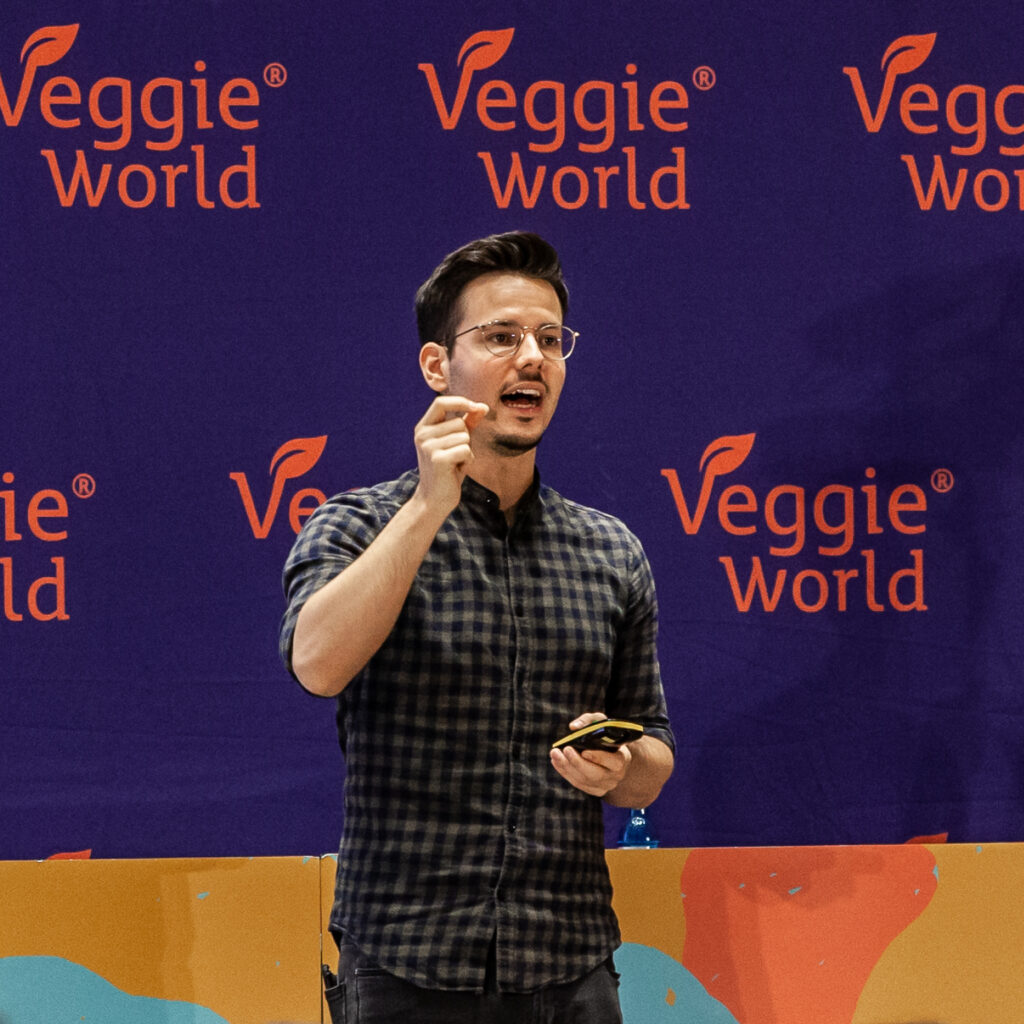
“How is it possible that something as essential as food and nutrition has become so difficult and complicated to understand?” This is the question which has led Niko Rittenau to where he is today. As a successful author, nutritionist and public speaker, he is keen to bring his knowledge about healthy vegan nutrition to as large an audience as possible. Through his work, he aims to raise people’s awareness of their own health, sustainability in practice, and to instill a sense of responsibility for the planet.
Originally from Austria, Rittenau is a trained cook and tourism agent. While he was working towards his original dream (to become a luxury hotel manager), he decided to give it all up to study for a degree in nutrition with a focus on plant-based diets. After his undergraduate degree, he completed a master’s in micronutrient therapy and alternative medicine; currently, he is writing his doctoral thesis in the field of food and nutrition science. Today, he uses all the knowledge he has gained from the fields of cooking and nutrition science to impart an awareness for health, good taste and sustainable consumption – all in a lively, practice-based way. Because, as Niko likes to emphasize in his presentations, there are three main risk factors at play when it comes to our health: breakfast, lunch and dinner.
“Every meal we eat has a huge influence – not only on our health, but also on the environment and the wellbeing of all living creatures on the planet”: this is just one of Niko Rittenau’s basic philosophies. This is his first interview as a new resident expert here at velivery, in which he gives exciting insights into what he does, what his motivation is and what secret ingredients he uses.

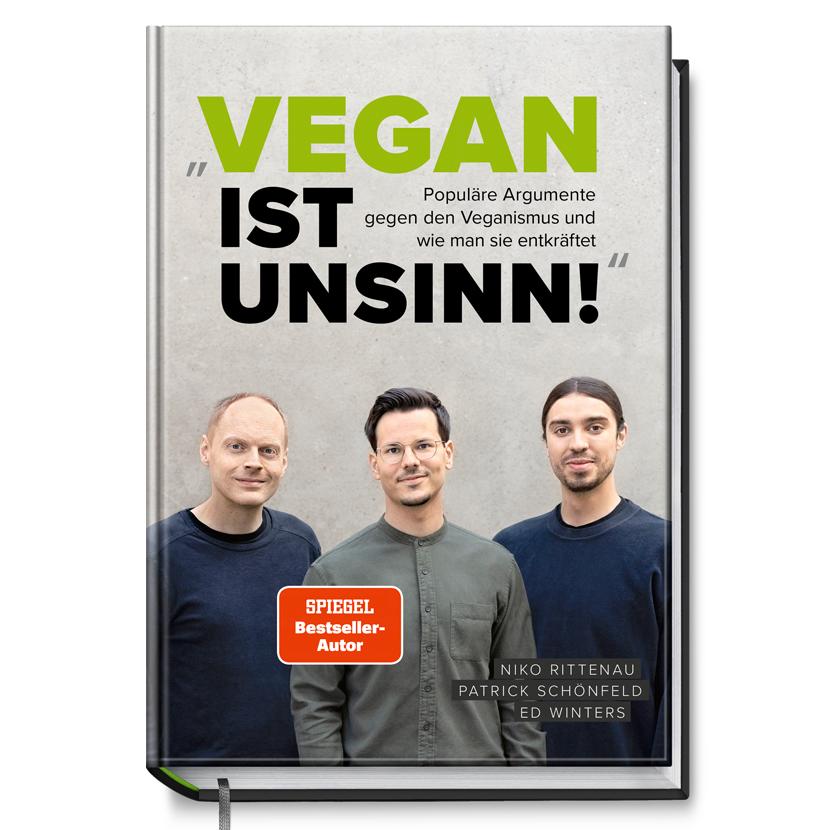

1. What were your personal motivations for becoming a vegetarian and then, in 2013, a vegan?
My reasons for switching to a vegan diet almost 10 years ago were, primarily, ethical. I only found out about the ecological advantages over time. I used to be a huge fan of cheese, so it was really difficult for me to say goodbye to Parmesan, feta and others, but when I learned in detail what happens during the production of the great majority of dairy products, I could no longer ethically justify eating them – despite my strong culinary preferences. I endeavor – as far as is possible and practicable in everyday life – to live in harmony with my ethics in all areas of life, and I don’t want to make an exception for food, so it became clear to me relatively soon that I would be saying goodbye to cheese and other animal products. That’s why I’ll be especially happy if, in a few years’ time, techniques such as precision fermentation – as part of cellular agriculture – are also able to produce milk proteins such as casein and whey proteins without the need for animals at all. This will mean vegan cheese that tastes exactly the same as conventional cheese, but which will have even better nutritional values.
2. What do you think are the main reasons for choosing a vegan diet?
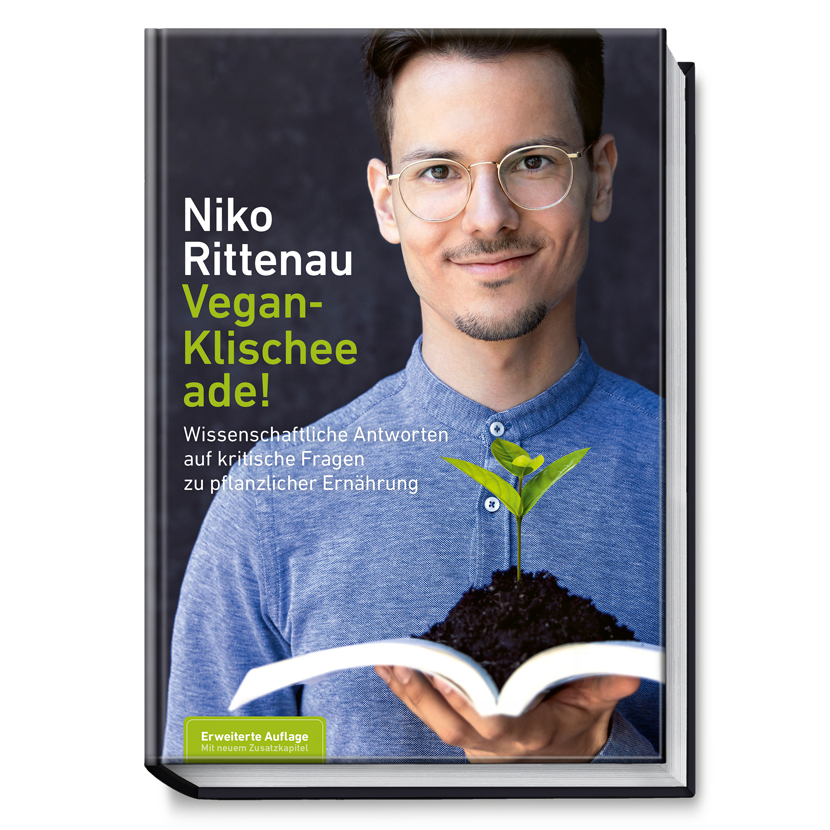
The definition set out by the Vegan Society in 1944 makes it clear that veganism is primarily an animal rights movement which speaks out against the exploitation of and cruelty against all sentient beings, regardless of which species they belong to. Ecological aspects, and aspects relating to the health of humans and the whole world do play a role in the original definition, but the core value of the movement is nonetheless animal ethics. Furthermore, in the worst case, placing too much focus on ecological or health aspects may detract the focus from the actual victims – that is to say the animals – onto other aspects. What is more, veganism is more than just a diet – it’s a way of life which aims, as far as is possible and practicable in everyday life, to avoid exploiting animals in any way, shape or form. This applies, among other things, to clothing, cosmetics and other everyday objects, as well as to zoos, circuses and other establishments in which animals are exploited for entertainment purposes or otherwise.
3. What motivates you?
Healthy, sustainable diets have enormous potential in relation to so many areas of life, and at the same time I see how disastrous the current dominant dietary patterns are for our health as humans, for the planet and – especially – for all non-human animals. As a specialized nutritionist, I consider it my responsibility to inform people about this as best I can, and to work with the restaurant industry, the food industry, retail and other actors in the world of nutrition to bring about change. I am in the privileged position of being able to support myself with work that means a lot to me personally, and which I find very meaningful. In return, I’d like to do my bit to make a difference in society. That’s what drives and motivates me to stay on the ball and not lose focus, despite the huge workload and 7-day-weeks.
4. What advice would you give to newbie vegans?
When you’re first trying to get to grips with the idea of a vegan diet as part of a vegan lifestyle, it can – for many people, especially those who have little prior knowledge of nutrition – quickly seem overwhelming. At the end of the day, however, eating a healthy vegan diet isn’t rocket science: it’s just that there are a few basic rules that need to be followed. That’s why, in cooperation with my friend and colleague, Sebastian Copien, I have created a completely free-of-charge online course called the “Beginner Masterclass” with all the info you need to get off to a great start with your vegan diet. You can access the free video series here: beginner.vegan-masterclass.de – you’ll find plenty of tips on how to make easy, healthy and delicious vegan food.
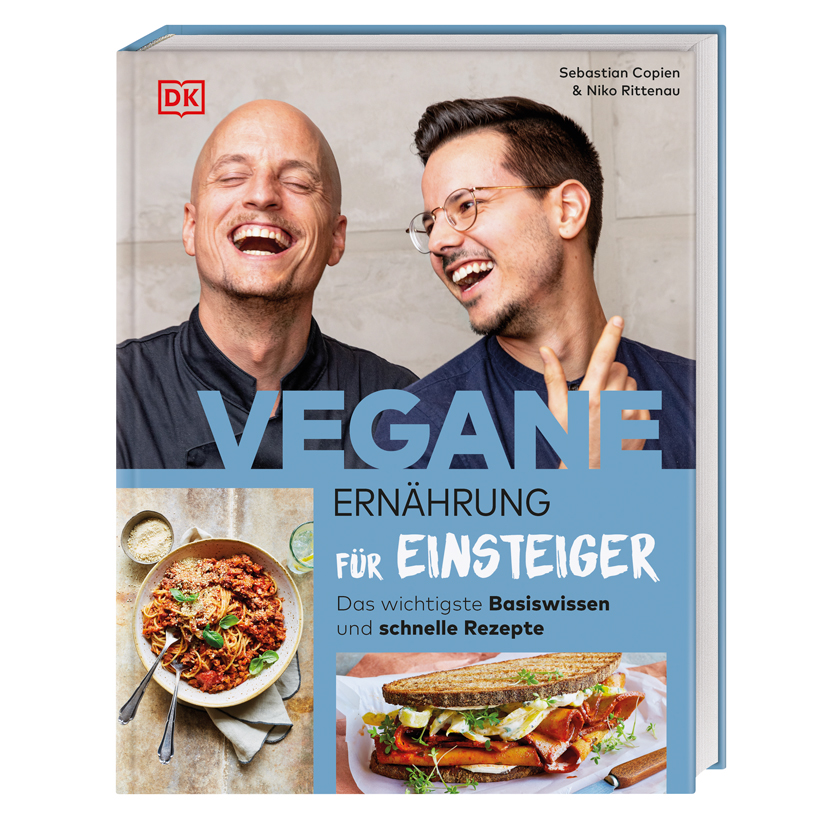
5. What makes good vegan cooking?
Good vegan cooking – just as with any other cuisine – is all about creating a good balance of the six flavors: sweet, sour, salty, bitter, umami and fat. The last two are of particular importance, as it tends to be animal products such as cheese and meat which bring many umami aromas to the table, and if you cut these products out of your diet, you should integrate them into meals in other ways. As many vegan meat alternatives such as tofu, soy chunks and seitan contain a lot less fat that most types of meat, you shouldn’t use fat sparingly if you want to achieve a taste experience that’s on the same level. Fat isn’t unhealthy per se, and your aim shouldn’t be to have a diet which is all too low in fat; instead, you should focus on healthy fats and just reduce your consumption of unhealthy fats. In collaboration with Sebastian, I created a freely available video for my YouTube channel about how to balance flavors and use this balance to create better vegan meals. The video is entitled “These tips from professional cook Sebastian Copien will make any vegan meal tastier!”*
6. Do you have any secret ingredients or favorite spices?
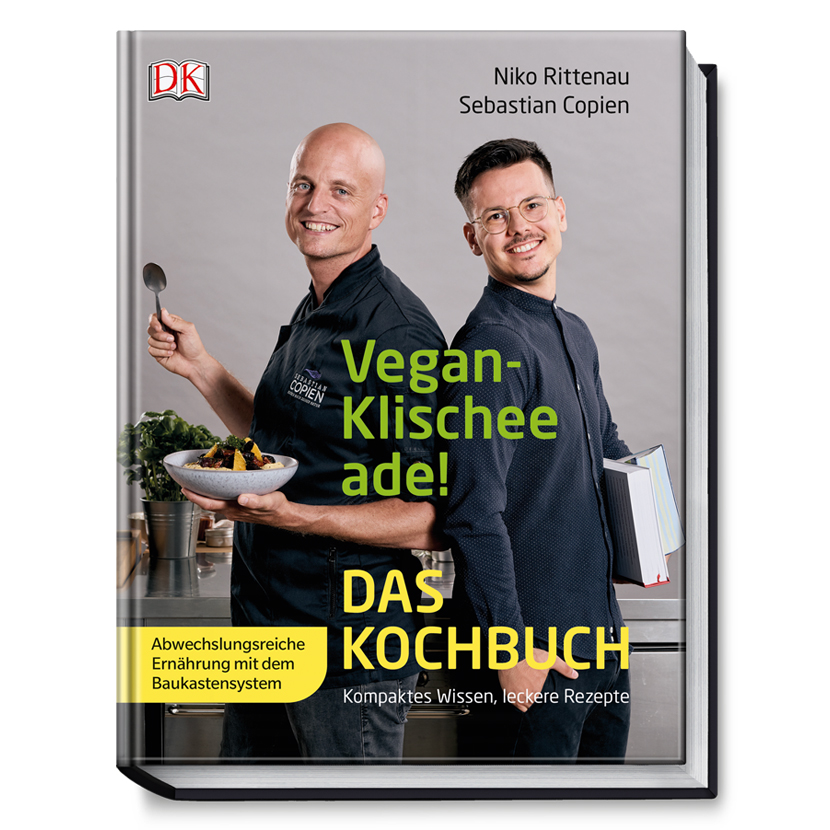
Nutritional yeast flakes and Japanese spice sauces/pastes! Nutritional yeast flakes give dishes a hearty, cheesy aroma and are also rich in B vitamins – in particular, they help you reach your recommended intake of the potentially critical vitamin B2 (riboflavin). There are even some yeast flakes which are enriched with vitamin B12, which means they help meet your recommended intake of the vitamin which is most critical for those on a vegan diet. Japanese seasonings such as miso, tamari and ume su lend dishes delicious umami aromas, and are especially good for vegan food as they provide the strong, hearty flavors that many people appreciate so much as part of a diet that includes animal products.
Furthermore, miso pastes**, especially, are extremely healthy: studies show that despite their high salt content, they don’t have the same negative health effects as conventional salt. According to scientists, this is thanks to the secondary phytochemicals contained in the soy beans which are used as a basis for most types of miso, the positive health benefits of which are intensified by the fermentation process and extensive maturation period. And if you are one of the handful of people who are allergic to soy, there are also soy-free miso pastes to choose from.
7. To what extent were you shaped by your university studies? Do you think that nutrition degrees include enough information on vegan diets?
For anyone wanting to work in the nutrition field, a degree is an indispensable basic requirement for this, as you learn many of the fundamentals of nutrition and are forced to deal with the more complex – but extremely important – fundamentals of biochemistry, medicine and nutrition physiology. These fundamentals are something that most people are missing – they only get their information about nutrition from online courses, books and other sources that don’t go into depth. That’s why both my undergraduate degree and my master’s, as well as the doctorate I’m currently working on at the University of Bonn – with the iron expert Prof. Dr. Klaus Günther as my supervisor – have had a long-term impact on how I view nutrition, and form the basis for all the other training etc. that I have done since then. While I learned next to nothing about vegan nutrition in my undergraduate or master’s degree, I did learn the basics I needed in terms of how to work scientifically, statistics, biochemistry and more, which meant I was able to get to grips with the relevant academic literature on my own and answer the questions I still had. On the one hand, it would be great if vegan nutrition were to be given more attention in future as part of nutrition-related degrees, but at the same time, specialists and teachers often lack academic education in this regard too, so I fear that many lecturers would not do the subject justice in their lectures.
8. Do you think that there are any critical points where a vegan lifestyle can go wrong?
Of course there are, and I make no secret of the fact I think that. It’s not without good reason that associations of expert nutritionists list a whole host of potentially critical nutrients, such as vitamins B12, B2 and D, minerals such as iodine, selenium, calcium and zinc, omega 3 fatty acids such as EPA and DHA – and the list doesn’t end there. Deficiencies aren’t inevitable, but you need to pay particular attention to your intake, and make sure you get certain nutrients – especially vitamin B12 – by taking food supplements until it becomes the norm that staple vegan foods are enriched with such nutrients. The simplest way of meeting your intake of essential nutrients is to use a well put-together multi-nutrient tablet, so you can get most of your needs from one product instead of having to take several individual ones.
You can find more information on my website, www.nikorittenau.com, and on my YouTube channel of the same name. Furthermore, there are certain genetic predispositions which mean, for example, that some people have a significantly reduced ability to convert the carotenoids in plants such as carrots and sweet potatoes into vitamin A, thus lowering the amount of vitamin A they can get from their diets. What’s more, even today, there is still doubt as to whether and if so, to what extent nutrients such as choline (formerly known as vitamin B4) have to be obtained from food, and whether a vegan diet can meet this need. Furthermore, it’s still not known for sure whether collagen synthesis can take place optimally in the long-term if you’re on a conventional vegan diet. And that isn’t the last in the list of unanswered questions. That’s why, too, it’s so important that more research is carried out into these topics, and that until then, to be on the safe side, certain nutrients should be consumed in the form of food supplements. Of course, the aim for the future should not be that it’s necessary to take supplements on a permanent basis – not because they aren’t effective, but because taking them requires extra effort and initiative. Instead, the aim should be for staple vegan foods to be enriched with adequate levels of these and other critically important nutrients. Vegan alternatives to fish should be enriched with the omega 3 fatty acids EPA and DHA as well as iodine (which are found in fish), plant-based drinks should always contain calcium and vitamin B12, and vegan alternatives to eggs should contain adequate levels of choline – just as eggs do. Vegan alternatives to meat should be as rich in iron, zinc, selenium and other minerals as their animal-product equivalents are, and vegan gelatin alternatives should contain the same amount of glycine (for optimizing collagen synthesis) as real gelatin does. Once that is the case, expert associations such as the German Nutrition Society – which are currently critical of a vegan diet – will recommend a vegan diet to people of all ages, and it will become much easier for people living a vegan lifestyle to eat a vegan diet during critical phases such as childhood, pregnancy, and while breastfeeding.

9. Do you come up against prejudices, and what arguments do you use against them?
Of course, there are more prejudices against vegan diets than there are stars in the sky – in part due to a lack of knowledge of the relevant subjects, but also out of sheer ignorance of this topic – one which is actually very relevant to our society. Things have got much better over the past few years, however, and especially in the media, it’s a lot less common to come across what is often referred to as “Vegan bullshit bingo”: that is to say, the same recurring, baseless arguments. However, you still often hear phrases like “Meat consumption made humans intelligent, which means it’s still vital today”, “Veganism is a first-world problem”, “If you don’t consume dairy products, you’ll damage your bones”, “Vegan diets are unnatural”, “Plants have feelings too” and “Veganism encourages eating disorders”. There are many more anti-vegan arguments which I still come across, even nowadays. Despite how absurd these statements and others are, I do have a lot of understanding for this, because I can remember very well that around 10 years ago, when I first came into contact with the subject of vegan diets, I made many of these statements myself without recognizing how absurd they are. We don’t have time or space to refute all these arguments here, but whenever you see prejudices like these being voiced in the comments sections of social media, feel free to post links to the YouTube videos of my colleague Patrick Schönfeld, who has made very objective videos with a rebuttal for pretty much all of the arguments you hear. His YouTube channel is called “Der Artgenosse” (which roughly translates to “Fellow species member”): www.youtube.com/c/DerArtgenosse
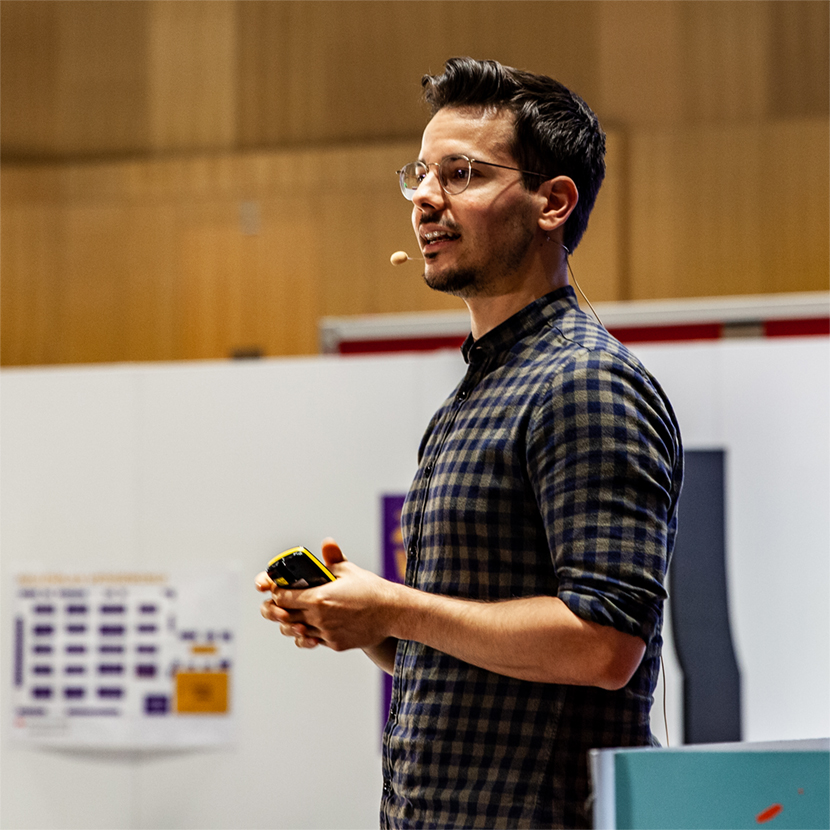
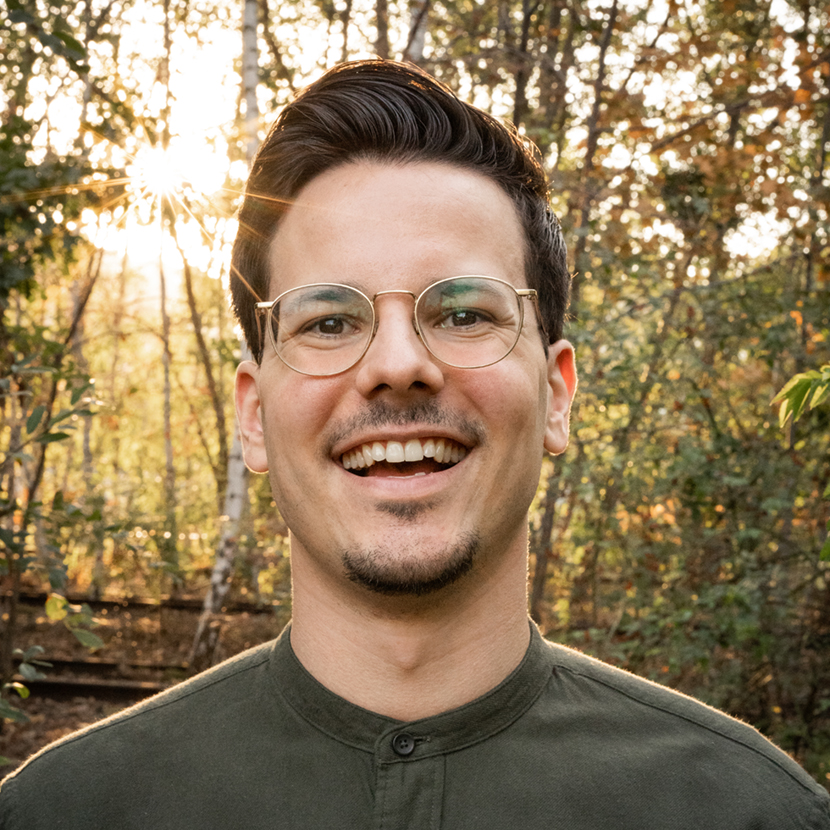

* Link zum YouTube-Video: https://www.youtube.com/watch?v=drgwH3pHxGc
** Link: https://www.velivery.com/en/food/spices-and-sauces/spice-and-seasoning/arche-naturkueche-genmai-miso-organic-300g














